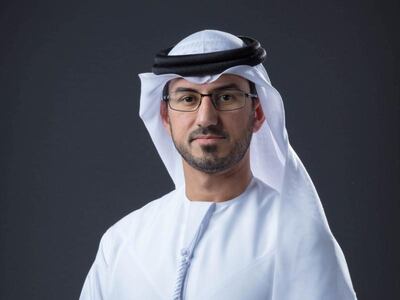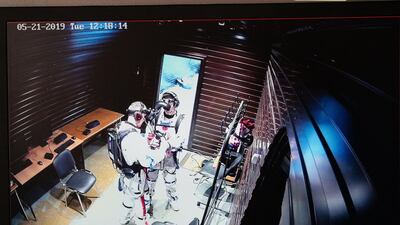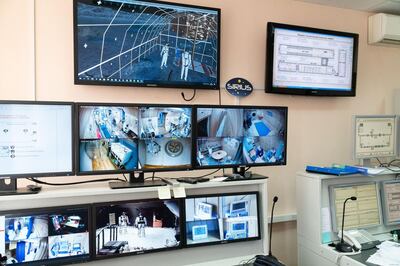Ten Emirati candidates have been shortlisted for a space research programme that involves living in near-isolation for eight months.
The candidate chosen for the UAE Analogue Mission will live among an international crew of six people inside a Russian centre designed to simulate living conditions on Mars.
The experiment has been designed to measure the psychological and physiological impact on humans of living in extreme environments, to help astronauts prepare for lengthy missions to the red planet.
Sirius 20/21 is the official name of the project – an initialism for Scientific International Research in Unique Terrestrial Station.
It will be carried out at the NEK experimental complex in Moscow.
The start date of the mission has yet to be confirmed, but it is expected to get under way later this year.
Of the 100 applications the UAE received, five men and five women have been shortlisted.
“All of them are of a high calibre, well-knowledgeable when it comes to the analogue mission and capable of enduring challenges associated with it,” said Adnan Al Rais, the Mars 2117 programme manager at Mohammed Bin Rashid Space Centre in Dubai.
Only two Emiratis, a primary and a back-up, will be selected as part of CrewOne.
The candidates come from various professional backgrounds, including engineering, medicine and other sciences, with the youngest a 25-year-old woman and the oldest a man aged 40.
All 10 candidates will undergo medical examinations to determine their fitness, health and psychological state.
A remote psychometric test will follow, to evaluate each person’s commitment, approach to teamwork, time management and ability to stay calm under pressure.
These tests are essential, as the crew will be completely cut off from the outside world for the duration of the mission.
They will have supplies of food and equipment, enabling them to perform scientific experiments as a team.
Russia has carried out Sirius experiments before, but this if the first to involve the UAE.
On previous missions, participants survived on freeze-dried meals and ate according to a timed schedule. The food was similar to that available on the International Space Station.
Another experiment carried out at the NEK centre, the Sirius-19 Lunar Mission Simulation, involved reducing the air pressure inside the module from that in the atmosphere on Earth, to prevent dust particles entering the unit.
The crew had access to a warehouse, greenhouse, gym and crew quarters containing a bathroom, kitchen and living room.
But the facilities available to the latest crew members may vary.
These tests will be followed by a final interview in the first week of May carried out by the MBRSC senior leadership team.

“We look forward to selecting the final crew members from this pool of talented candidates,” Mr Al Rais said.
“Their varied experience and expertise, along with those of the other crew members selected for the mission, will contribute to the realisation of the Mars 2117 Programme and enable us to undertake more ambitious space exploration challenges.”
The findings obtained on the mission will help the UAE prepare for its ambitious Mars-related projects, which include plans to build an entire city on the red planet by 2117.




